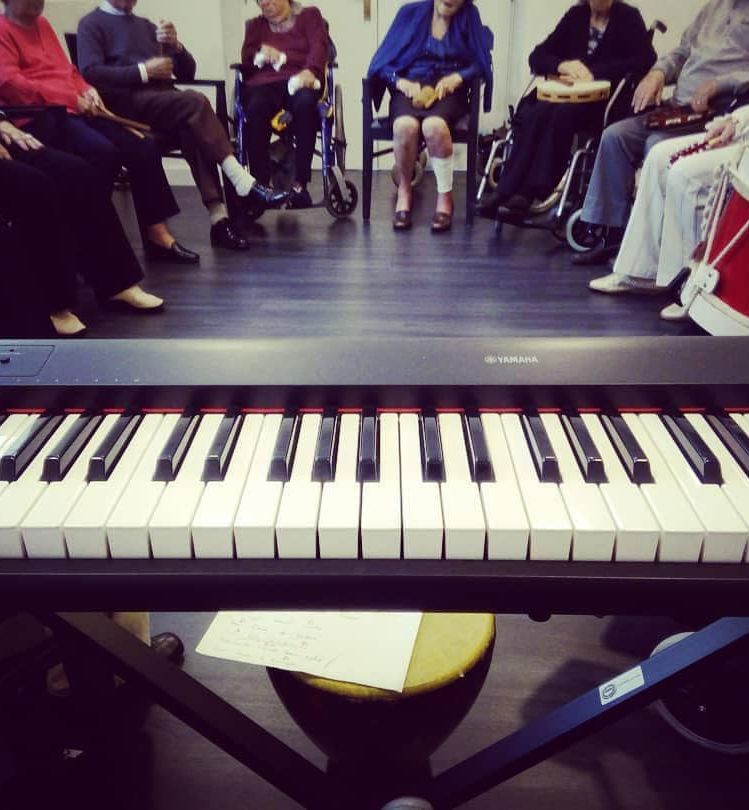Music therapy is a creative therapy that often focuses on non-verbal communication, enabling meaningful connection through sound, rhythm, and improvisation—especially when words are limited or unavailable.
We use musical instruments, singing, and rhythm to stimulate communication, develop motor skills, memory, attention and promote emotional well-being.
- Improves communication and emotional expression
- Stimulates motor coordination and concentration
- Supports cognitive and sensory development



